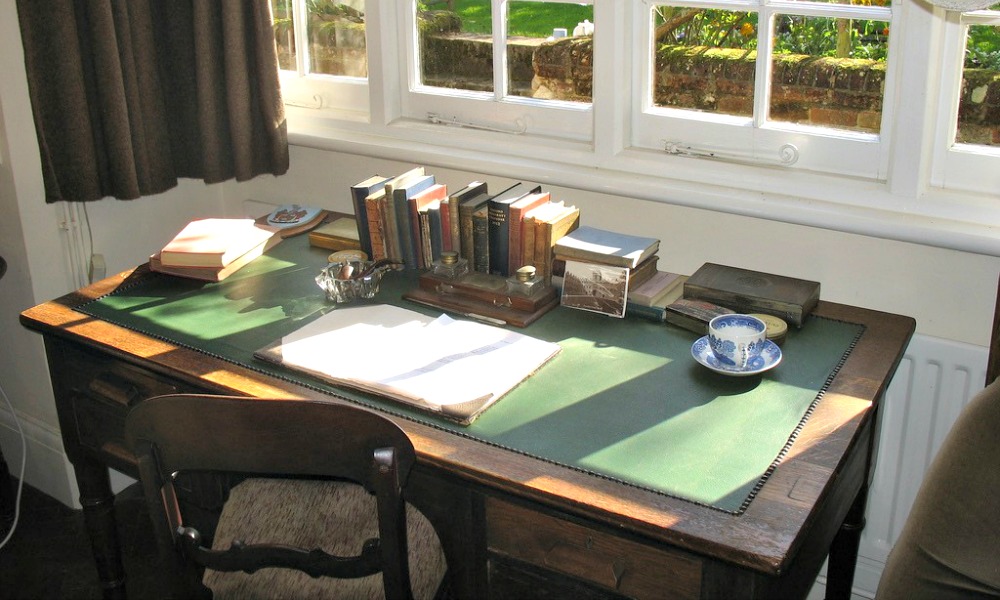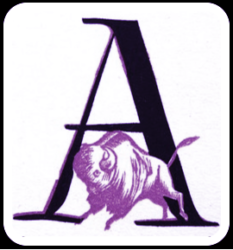I have been reading Chesterton’s All Things Considered this past week. While I enjoy his razor-sharp wit and (get this) his plethora of memorable aphorisms, I am always a bit shocked at how narrow his understanding of the Puritans was. His characterization of puritanism was no doubt the popular one of the day, but I long for greater precision. I am not sure one can be both a Rump separatist and one who wishes to purify the English church at the same time, though Chesterton assumes it. In a number of essays he takes his straw killjoys to the woodshed for a whuppin’. But I will leave the discussion of his views of Cromwellian times for another post.

The most prized Chesterton work in my collection is The Club of Queer Trades. Mad sleuth Basil Grant is my favorite detective–even above Hercule Poirot. Unfortunately, Basil only appears in this one brief work. In honor of Chesterton’s birthday I want to share my pet extract from the book. I love these paragraphs because they have brought forth rivers of imagination flowing through my mind. The narrator of the story and Basil Grant meet one day on a London double decker tram for a conversation while the city rushes by:
Basil Grant and I were talking one day in what is perhaps the most perfect place for talking on earth–the top of a tolerably deserted tram car. To talk on the top of a hill is superb, but to talk on the top of a flying hill is a fairy tale.
The vast blank space of North London was flying by; the very pace gave us a sense of its immensity and its meanness. It was, as it were, a base infinitude, a squalid eternity, and we felt the real horror of the poor parts of London, the horror that is so totally missed and misrepresented by the sensational novelists who depict it as being a matter of narrow streets, filthy houses, criminals and maniacs, and dens of vice. In a narrow (p. 56) street, in a den of vice, you do not expect civilization, you do not expect order. But the horror of this was the fact that there was civilization, that there was order, but that civilization only showed its morbidity and order only its monotony. No one would say in going through a criminal slum, “I see no statues. I notice no cathedrals.” But here there were public buildings; only they were mostly lunatic asylums. Here there were statues; only they were mostly statues of railway engineers and philanthropists–two dingy classes of men united by their common contempt for the people. Here there were churches; only they were the churches of dim and erratic sects. Agapemonites or Irvingites. here, above all,there were broad roads and vast crossings and tramway lines and hospitals and all the real mores of civilization. But though one never knew, in one sense, what one would see next, there was one thing we knew we should not see–anything really great, central, of the first class, anything that humanity had adored. And with revulsion indescribable (p. 57) our emotions returned, I think, to those really close and crooked entries, to those really mean streets, to those genuine slums which lie around the Thames and the City, in which, nevertheless, a real possibility remains that at any chance corner the great cross of the great cathedral of Wren may strike down the street like a thunderbolt.–(“The painful fall of a great reputation,” in The Club of Queer Trades by G. K. Chesterton, pp. 55-57)
In what sense is talking on the top of a hill a great experience? Is it the solitude or the prospect of all that surrounds the hill? And so, how does talking on the top of a tram exceed that experience, and vault us into the category of fairy tale? Literary critics have argued about the proper definition of fairy tale for at least a century. In what sense does the narrator mean this experience is a fairy tale? Is it being a part of Basil’s mad world, or is it something sublime and indeed transcendent?

